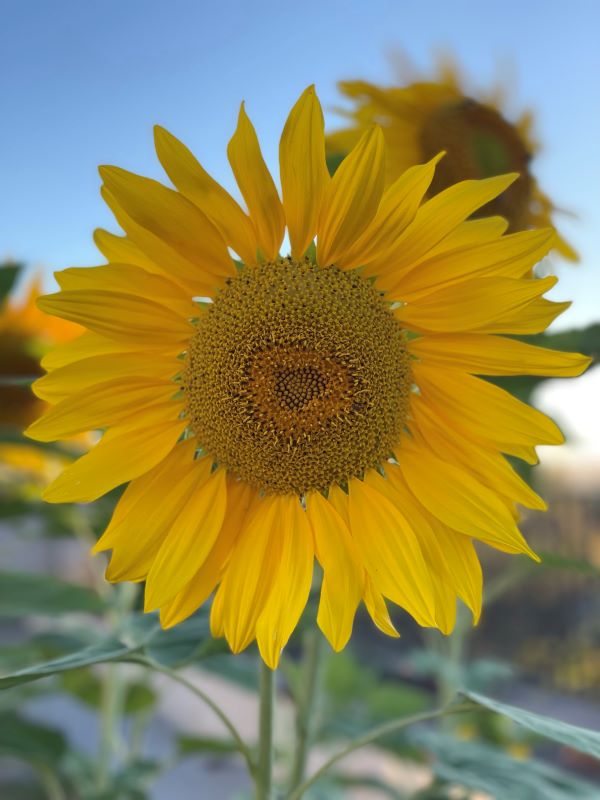
How Plants Benefit Our Planet
Share

Plants are the silent guardians of our planet, tirelessly working to sustain and improve our environment. Whether it's the lush trees in our backyards or the small houseplants adorning our windowsills, each green life form plays a crucial role in maintaining ecological balance. Here's how plants contribute to the health of our planet and why incorporating more of them into our lives can make a significant difference.
1. Air Purification

One of the most well-known benefits of plants is their ability to purify the air. Through the process of photosynthesis, plants absorb carbon dioxide and release oxygen, a vital gas for human and animal life. But their air-purifying abilities extend beyond this. Many houseplants, such as spider plants and peace lilies, can also remove toxins like formaldehyde, benzene, and trichloroethylene from the air, making indoor environments healthier.
2. Climate Regulation
Plants play a pivotal role in regulating the earth's climate. Forests, often referred to as the lungs of the Earth, absorb large amounts of carbon dioxide, a major greenhouse gas contributing to global warming. By storing carbon in their biomass and soil, forests act as significant carbon sinks. Additionally, urban greenery, such as trees and shrubs in our backyards, can help mitigate the urban heat island effect, where urban areas become significantly warmer than their rural surroundings due to human activities and infrastructure.
3. Water Conservation and Quality
Plants are crucial for the water cycle. They help maintain the balance of water in the atmosphere through the process of transpiration, where water is absorbed by plant roots from the soil and then released as vapor through their leaves. This process not only helps in maintaining humidity levels but also supports cloud formation and precipitation. Furthermore, plants prevent soil erosion by anchoring the soil with their roots, reducing runoff and ensuring that rainwater infiltrates the ground, replenishing groundwater supplies. In wetlands and riparian zones, plants also play a role in filtering pollutants from water, improving water quality.
4. Supporting Biodiversity
Plants form the foundation of most ecosystems, providing food and habitat for a vast array of organisms. A diverse plant community supports a healthy and diverse animal community. For instance, flowering plants attract pollinators like bees, butterflies, and birds, which are essential for the reproduction of many crops and wild plants. In your backyard, planting a variety of native species can create a mini-ecosystem, supporting local wildlife and promoting biodiversity.
5. Mental and Physical Well-being
The benefits of plants extend beyond the environment to human health. Numerous studies have shown that being around plants can reduce stress, enhance mood, and improve concentration and productivity. Gardening, whether it's tending to a backyard garden or caring for houseplants, is also a great form of physical exercise that can improve cardiovascular health and increase overall physical activity levels.
6. Food and Medicine

Plants are a primary source of food for humans and animals. They provide us with fruits, vegetables, grains, nuts, and seeds, which are essential for a balanced diet. Moreover, many plants have medicinal properties and have been used for centuries to treat various ailments. For example, aloe vera is well-known for its soothing properties, while plants like turmeric and ginger have anti-inflammatory effects.
7. Aesthetic and Economic Value
Plants add beauty to our surroundings, enhancing the aesthetic value of landscapes and urban areas. Well-maintained gardens and green spaces can increase property values and attract tourism, contributing to the local economy. In urban settings, green roofs and walls not only beautify buildings but also provide insulation, reducing energy costs.
Conclusion
Incorporating more plants into our lives, whether through cultivating houseplants or developing backyard gardens, is a simple yet powerful way to contribute to environmental sustainability. Plants purify the air, regulate the climate, conserve water, support biodiversity, enhance human well-being, provide food and medicine, and add economic value. By nurturing plants, we not only improve our immediate surroundings but also make a positive impact on the global environment. So, let's embrace the green guardians and give them the care and attention they deserve, for a healthier, greener future.
To share your love for plants, check out our plant and nature-related apparel and accessories here!
